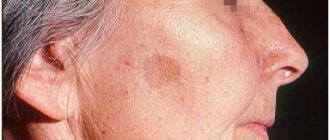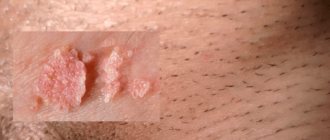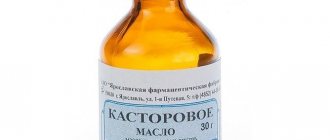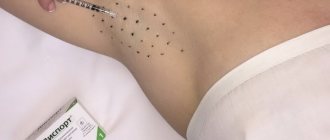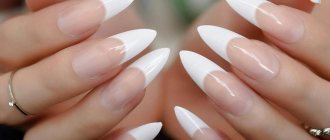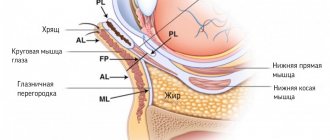The role of skin care during illness
With psoriasis, accelerated renewal of the upper layer of skin is observed. Normally, epidermal cells form within 3-4 weeks, but in case of illness this process is reduced to 4-7 days[2]. As a result, the skin loses elasticity and becomes dry and sensitive. Characteristic psoriatic plaques appear on the surface of the body. A person is bothered by itching in the affected areas.
Proper skin care helps:
- eliminate discomfort - relieve itching, burning;
- protect the skin from the addition of a secondary infection that provokes complications;
- accelerate the healing of plaques;
- soothe irritated skin.
Contraindications for use
Any procedures with sea salt are contraindicated for patients who suffer from:
- hypothyroidism;
- diseases of the heart and blood vessels, circulatory disorders;
- exacerbation of chronic diseases;
- thrombophlebitis;
- hypertension.
Even if the patient does not suffer from the above pathologies, before using salt, be sure to consult with your dermatologist. Very often, salt is not allowed to be combined with medications used at this stage or if local immunity is weakened.
In addition, when using salt, pregnant women with acute illness should be especially careful.
Hygiene rules for psoriasis
You can't do without regular cleansing. Water treatments help get rid of external impurities and excess sebum. On the other hand, prolonged contact with water during the acute phase can worsen the skin condition. The plaques become soft, grow, and their area increases[3].
To avoid worsening, you should refrain from taking a bath and spend no more than 5-10 minutes in the shower. The water temperature should be average - no higher than 37-38 degrees. Hard sponges cannot be used. Mechanical impact can injure the skin, which leads to the appearance of new lesions.
Particular attention is paid to the choice of detergents. Key criteria:
- neutral pH level;
- no fragrance;
- homogeneous texture without abrasive particles;
- minimal amount (or complete absence)
Do not rub your skin after a shower. Such tactics will only increase irritation. It is better to gently blot areas with plaques with a soft towel.
With psoriasis, it is extremely important to keep your hands clean to protect yourself from introducing pathogenic bacteria to the affected skin. To avoid scratching, it is better to cut your nails short. If the plate itself is damaged, you should stop polishing or applying varnish.
Sea salt compresses
Various compresses with sea salt can also be effective in treating psoriasis. However, as with baths, you should consult your dermatologist before using them.
- Salt compress . You need to dissolve 100 grams of salt in a liter of boiled water. Then you should put gauze folded in 8 layers into the prepared solution, squeeze it out and apply it to the areas affected by psoriasis. It is recommended to apply cling film on top, and then wrap the compress with a warm towel. The compress can be left overnight.
- Hot compress . It is recommended to add 2 tablespoons of sea salt to a liter of hot water. After the salt has completely dissolved, a clean cloth is dipped into the mixture, wrung out and applied hot to the affected area for 30 minutes. This treatment will help increase blood circulation in the affected area and speed up the healing process of the skin.
- Steam compresses . Sea salt should be heated over a fire to a temperature of approximately 70 degrees. Then the salt is carefully poured into a fabric bag and applied to the plaques for 35-40 minutes. If it is impossible to withstand the temperature, you can place the bag on wax paper.
Soda-salt ointment will also be effective in the treatment of psoriasis. This remedy is easy to prepare at home. We will need:
- 1 tablespoon chopped sea or Epsom salt;
- 1 teaspoon baking soda;
- 200 ml melted lard;
- 2 tablespoons of birch tar;
- 1 tablespoon fir oil;
- 2 tablespoons of grated laundry soap.
The prepared components should be mixed until a homogeneous mass is obtained, and then placed in the refrigerator until completely solidified. The resulting product can be applied to the affected skin every day before bed for 2-3 weeks.
Skin care cosmetics
- Moisturizing. Such products protect the skin from excessive dryness, fight flaking and a feeling of tightness, and restore comfort. For psoriasis, you can use emollients - special pharmaceutical products with a complex effect. They deliver water to the deep layers of the skin, restore the lipid barrier and promote damage healing.
- Exfoliating (keratolytics). These products soften plaques and promote healthy skin. The composition may include urea, lactic acid, salicylic acid.
For psoriasis, it is useful to use skincare products containing vitamin D3[4]. This substance helps suppress inflammation and strengthen the skin barrier. Another form, vitamin D2, is synthesized inside the body under the influence of UV rays. The compound also accelerates healing, so experts recommend taking short (no more than 15-20 minutes) sunbathing for psoriasis. Despite the benefits of tanning, you should not ignore products with an SPF filter. They protect sensitive skin from burns, which in psoriasis are no less dangerous than mechanical damage.
Proper nutrition and diet
Nutrition plays a vital role in preventing the development of almost all chronic diseases, psoriasis and its prevention is no exception. There are some diet plans that can produce positive results, such as the Pegano diet, but the essence is the same and involves eliminating harmful substances. It is because of the negative impact of food that relapses occur. This is justified by the fact that liver damage in psoriasis is a characteristic course of the disease. 1. Avoid fried, spicy, salty and pickled foods at all. Also exclude canned food; semi-finished products can be consumed in small quantities, but only homemade. Eat perishable foods with caution. All this worsens the process of food processing in the gastrointestinal tract; 2. You cannot eat citrus fruits, as they are considered highly allergenic fruits. Citrus fruits also contain colchicine, which destroys folic acid, which in turn is one of the important components of skin regeneration; 3. It is not recommended to eat corn; 4. Relapses are possible due to bananas, mangoes and strawberries; 5. It is forbidden to eat sweets, as well as flour products; 6. Eating potatoes is acceptable, but the quantity should be greatly reduced. This is due to the high potassium content. By reacting with sodium, they have an antagonistic effect on calcium. Calcium is important for eliminating the inflammatory response; 7. Fatty meats should be minimized; these primarily include pork and lamb. Replace with more dietary varieties of meat; 8. Highly allergenic foods are considered: eggs, tomatoes, coffee, chocolate, honey, and mushrooms; 9. Dairy products are healthy because they contain a lot of protein and fat. It is recommended to include cottage cheese, milk, fermented baked milk and cheese in the diet. Thanks to the most important amino acids, the course of biochemical reactions throughout the body is normalized. At the same time, the high calcium content helps eliminate inflammation, as well as allergic manifestations; 10. Treatment and prevention of psoriasis responds well to eating foods of plant origin, such as vegetables, fruits and herbs. However, they should be eaten raw. Carrots have beneficial properties thanks to vitamin A. This component leads to the normalization of metabolism in the skin and helps to perform faster regeneration; 11. The diet should include porridge every day. The most useful cereals are: wheat, oatmeal and buckwheat; 12. For the fastest treatment of psoriasis, you need to drink a lot of fluids, this includes juices, water, including mineral water, teas, etc.; 13. If you have intolerance, prevent the consumption of allergens. This nuance is determined with the help of the attending physician.
Medicines for psoriasis
You cannot get rid of the disease, but its course can be controlled. External medications[5] will help with this. Therapeutic creams and ointments relieve itching, trigger epidermal regeneration, and suppress inflammation. Experts recommend the use of complex-action drugs containing several active components at once [6].
A universal assistant for psoriasis - Akriderm SK. It contains two components: betamethasone and salicylic acid[7]. This composition provides a comprehensive effect. The product penetrates to the source of inflammation, promotes the healing of psoriatic plaques and eliminates the symptoms of psoriasis - itching, burning, redness, swelling. It helps fight pathogenic flora on the surface of the skin, which can help reduce the risk of relapse and secondary infection. This is how it differs from monocomponent analogues. In addition, the drug is well tolerated and causes virtually no side effects [8].
An exacerbation of psoriasis is accompanied by discomfort, but unpleasant symptoms can be avoided if you carefully care for your skin during periods of remission. It is important to avoid mechanical damage, protect yourself from sunburn, regularly use moisturizers, and in case of relapses, use topical medications prescribed by a specialist.
Important Rules
In order for sea salt to definitely help and not aggravate the disease, you should follow important rules. They are simple:
- Purchase an exclusively natural product, without flavorings or dyes, otherwise an allergy may well develop in addition to psoriasis. It is best to purchase salt in pharmacies.
- Do not change drug therapy to treatment with salt alone. Doctors advise this option only as an addition to pharmaceutical ointments and tablets; no compresses or baths can remove the disease on their own.
- You should not take long baths, otherwise the sea salt will dry out the skin, and the burning sensation and itching will become stronger.
- To improve the effect, instead of water, you can add decoctions of herbs with an anti-inflammatory effect to recipes that will help heal wounds (calendula, chamomile, nettle, etc.).
- You need to choose only one method of treatment with sea salt (either compresses or a bath), otherwise the skin will be overdried, and this will only worsen the symptoms.
- Table salt and sea salt are two different products. The latter contains more useful substances and minerals, so you should not replace it with the usual one when treating psoriasis.
Bandages
Salt lotions or dressings are an excellent aid in the treatment of chronic skin diseases. Salt is part of human tissue fluids and blood, so its therapeutic effect is based on its antiseptic, absorbent, drying and decongestant properties.
To prepare a saline dressing, gauze folded in 6-8 layers or 4 layers of cotton fabric should be dipped in a hot hypertonic solution for a minute, squeezed lightly so that the water does not drain and applied to psoriatic rashes. The gauze must be attached with a bandage or a narrow plaster to ensure a tight fit to the sore spot. It is important that the compress is not made hermetically, using hygroscopic and breathable fabric. It is better to leave the bandage overnight for 10-12 hours. After the procedure, it is important to blot the skin with a damp cloth, and then apply a hypoallergenic cream or medicinal ointment.
Baths
Helps reduce the manifestations of psoriasis:
- Classic salt baths . Such procedures have an anti-inflammatory and detoxifying effect. To prepare them you need to use 10 grams of salt for every liter of water. The procedure takes 20 minutes.
- Salt baths with iodine . To prepare this bath, in addition to salt, you need to take 10 ml of iodine. The bath has a disinfecting effect and soothes the skin.
- Salt baths with pine needles . Adding a decoction of pine needles, as well as other medicinal herbs, for example, licorice, chamomile, celandine, string, valerian, sage, calendula, will help to greatly enhance the effect of a regular salt bath.
- Soda-salt baths . Salt and soda mixed in equal parts will help enhance metabolic processes in skin cells and have a softening effect on the epithelium.
